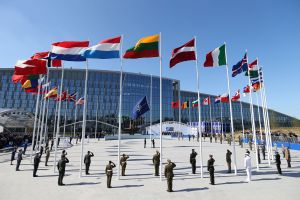Experts on the US-Russian relationship think that decreased communication between the two governments, toxic media coverage, and the natures of both presidents pose formidable challenges to the relationship.
Introduction
US President Donald Trump and Russian President Vladimir Putin are set to meet in Finland next week, where they will likely discuss the future of Ukraine, the civil war in Syria, arms control, and Russia’s alleged interference in the 2016 US election. However, experts on the US-Russian relationship—interviewed before the summit was announced1—think that decreased communication between the two governments, toxic media coverage, and the natures of both presidents pose formidable challenges to the relationship. During the Cold War, US-Russian cooperation on nuclear and conventional arms control provided some degree of information-sharing and transparency. Experts warn that the lack of communication on this front today could result in heightened risk for escalation.
Key Findings
- Almost all experts in the United States and Russia express scant hope for the US-Russian relationship in the near term. Some, however, could see a path towards improved relations in the distant future.
- Experts in both countries say that both sides—and both presidents—are responsible for the strained relationship.
- They place a good portion of the blame on the United States, particularly for how US leaders have conducted foreign policy since the end of the Cold War.
- Experts also blame Russia’s recent forays into Western election interference and Russian insecurities about US intentions for the current bilateral difficulties.
- Another frequently cited source of ill-will on both sides is Russian and US media.
- Russian and American experts see a real need for cooperation on nonproliferation and arms control.
Methodology
Following surveys among the American and Russian general publics, the Chicago Council on Global Affairs and the Levada Analytical Center reached out to experts on US-Russian relations to see how closely their views aligned with public opinion. The Council surveyed 57 US-based experts at universities and research institutes and Levada interviewed 19 Russia-based journalists, academics, and research experts. While the discussion guides differed for each set of experts, this report focuses on those areas where comparisons are possible.
- 1
The Chicago Council surveyed 57 US-based experts on the US-Russian relationship between April and May, 2018. The Levada Analytical Center interviewed 19 Russia-based experts between April and June, 2018.








